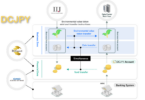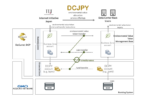The German workwear company KAYA&KATO has partnered with IBM to develop a blockchain network for traceability in the clothing supply chain. The platform aims to enhance transparency to provide consumers with information about the sustainability practices involved in the product they’re purchasing. The project is supported by the German Federal Ministry of Economic Development (BMZ).
KAYA&KATO’s initiative responds to an increasing demand from consumers to understand the environmental impact of their purchasing behavior. According to a study conducted by the IBM Institute for Business Value in association with the National Retail Federation, 77% of consumers surveyed perceive sustainability as important, and 57% said they are willing to change their purchasing habits to help reduce negative impact on the environment. Another study conducted by Morning Consult and commissioned by IBM resulted in 75% of respondents claiming concerns about the level of waste in the fashion industry, and 64% responded they were more likely to buy a fashion product if the sustainability claims could be proven.
There are numerous aspects to sustainability, from the chemicals used to labor practices. According to a UNICEF sponsored report, global child labor figures are estimated at 170 million and a large proportion of those are in apparel.
IBM’s blockchain network documents and traces all steps in the supply chain of textiles. It allows KAYA&KATO customers to identify the origin of the fabrics, how they were processed, and gain further insight into production and distribution. All permissioned parties will have access to the data in an unchangeable record on the chain.
The use of blockchain to certify sustainability creates a permanent and traceable record of the origin of materials and builds trust in production quality.
Meanwhile, KAYA&KATO is one of the first 27 companies to be certified with the “Green Button” by the German Federal Ministry of Economic Cooperation and Development, which has a history of supporting and demanding more transparency in global supply chains. The Green Button is a seal for textile manufacturers that certifies it’s sustainability practices in production.
Blockchain in the fashion and clothing industry has predominantly been used to address counterfeits. Recently PwC, in partnership with Var Group and others launched a platform to verify the authenticity of luxury products on blockchain. Mastercard has been working on blockchain-based traceability solutions for luxury clothing for over a year. And Everledger launched blockchain DNA tagging for leather in collaboration with Applied DNA back in 2018.
However, blockchain has also been used to trace sustainability practices in the fashion industry. Canadian Convergence.tech launched a blockchain pilot for traceability in the Mongolian Cashmere supply chain with the UN’s support earlier this year.






